5 ways to bounce back after a food binge
Here’s how to reset your mind—and your body—after a period of indulging.
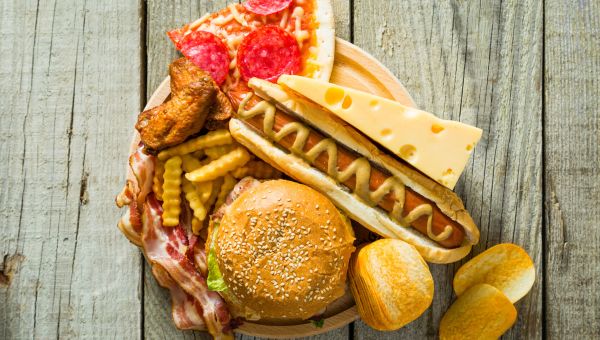
An indulgent vacation, a weekend eating greasy takeout and watching Netflix, or a night in with a gallon of ice cream can make you feel like you need to get back on track with healthier food choices. We’ve all been there.
Healthy eating is something you’ll always have to work on. Even if you have a couple of days poor eating, the most important thing is to get right back into healthy habits, says bariatric surgeon Matthew Metz, MD, of Presbyterian/St. Luke’s Medical Center in Denver, Colorado. We talked with Dr. Metz to learn how to bounce back after a week—or weekend—of extra calories.
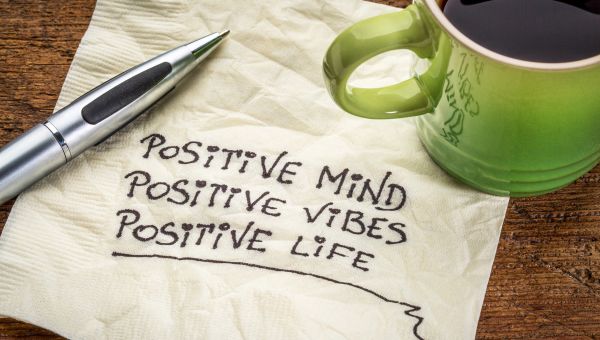
Don’t, under any circumstances, beat yourself up
Perhaps the most important way to get back on track after eating too much is to stay positive. “We're all always battling our weight, with our dedication to certain programs or with our adherence to our New Year's resolutions,” says Metz. “Beating ourselves up and just throwing the whole thing out the window is not the way to look at this. It’s a lifelong process, not just a short skirmish.”
When you’re working to get back on the wagon, stay confident by remembering the weight loss or exercise goals you set for yourself and why you set them. Most likely it was because you want to live a long, healthy life, and you want to feel good about yourself. One week of poor eating habits isn’t going to derail your life goals, and remembering why you try to eat healthily can give you the confidence to get back in the game.

Start hydrating—immediately
Metz recommends his patients fill up on at least 64 ounces of fluid a day, preferably by drinking water. “It can help keep you feeling full."
You may end up drinking unnecessary calories if you’re loading up on high-cal, sugary beverages. Try adding lemon or cucumber to your water for some more flavor.
And if you’re having trouble keeping track of your H20 intake or remembering to hydrate, sticky notes with the word “hydrate” written on them can help. Try sticking them on your computer at work, the kitchen cabinets at home or your bathroom mirror so you remember to drink the recommended amount each day.
There’s no one-size-fits-all for recommended water consumption, since strenuous exercise, climate, medical conditions and certain medications may mean you need more or less water throughout the day, but Metz’s eight 8-ounce glasses of water is a good place to start. People with certain kidney problems or who take some kinds of diuretics may need to be careful about how much water they drink.
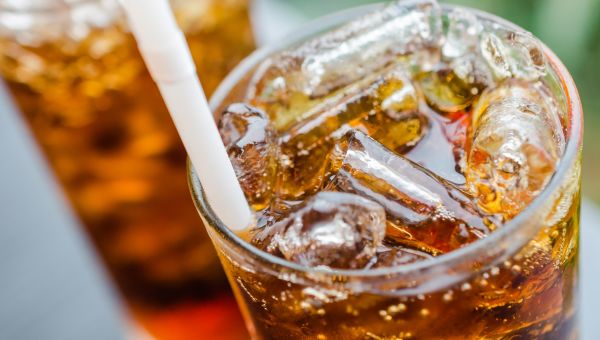
Steer clear of “empty” carbs
When it comes to what you eat, reducing your intake of “empty” carbs after an eating spree can help you feel better and lose weight.
“I recommend that my patients avoid refined grains like white bread, white rice, pasta and carbonated and sugary beverages," says Metz. “I also try to stay away from things like crackers and cookies—anything carbohydrate-laden.”
But you don’t have to give up carbs completely. Try complex carbohydrates instead—they digest slowly and are loaded with important vitamins and minerals. Whole grains like barley, quinoa, brown rice and oats have large amounts of fiber, which will help keep you fuller, longer.
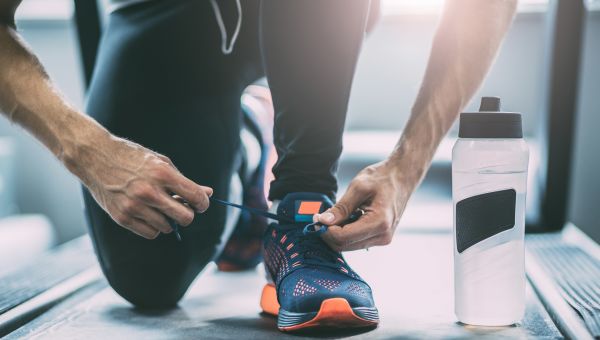
Work up a sweat
This one is probably a no-brainer, but exercise is key when it comes to maintaining a healthy weight. Regular exercise has lots of other benefits, too. It can help boost your mood, reduce your risk of certain cancers like colon cancer and breast cancer and lower your risk of other health conditions like diabetes and heart disease.
“There’s also new data showing that exercising the muscles of the body helps propel us to do activities. If you’re utilizing those muscles on a regular basis for exercise, it actually helps your body burn calories more efficiently," says Metz.
Finding a class or workout you enjoy doing will help it become a habit, he adds. Try a new yoga or spinning class, or head to your local pool for a 30-minute swim session. In addition to your workout routine, try squeezing in more exercise throughout the day: take the stairs instead of the elevator, do crunches during the commercials of your favorite television shows and ramp up the frequency of common household chores like vacuuming, gardening and raking leaves (yes, these all count as exercise, too!).

Plan ahead for the next time you might be tempted
To avoid future food binges, planning ahead is critical, says Metz. “If you know that Easter or Halloween is coming up, or that you’re going to a party this weekend, plan ahead so you don’t walk into an event hungry.” Eating a healthy snack, like all-natural peanut butter on whole grain bread, can help prevent overeating while there.
If you want to eat healthier while vacationing, try packing healthy snacks like raw almonds and dried fruit. Once you arrive, hit the grocery store to stock up on some of Metz’s other favorite low-cal picks, like hard-boiled eggs and smoked fish, to store in the refrigerator in your room. “The first thing I do when I’m traveling is go to the market, so I can stock my backpack and hotel room with fresh fruits, vegetables and nuts. That way, I’m not tempted to reach for the bad stuff.” If you have a kitchen in your room, try making some of your meals there, using local ingredients.
More On


video
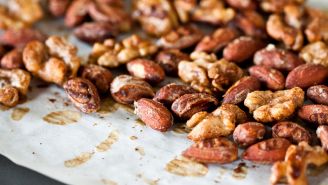
article


video


video


video
